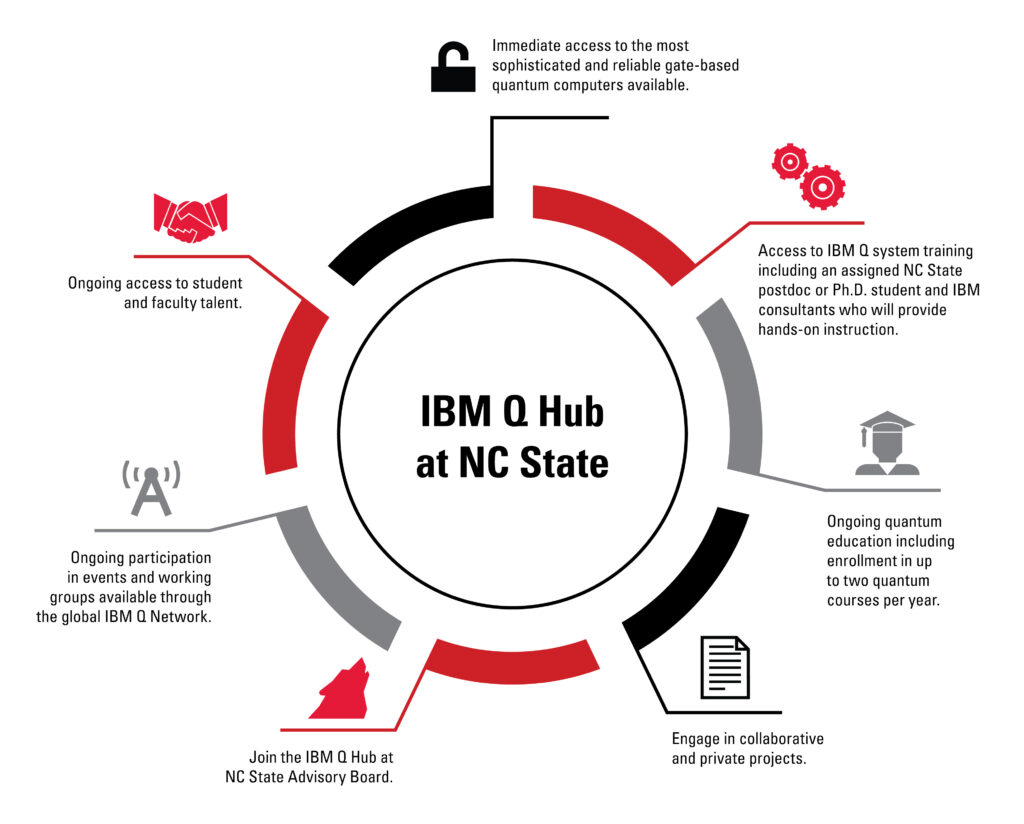Industry Membership
The IBM Quantum Innovation Center at NC State is a cross-disciplinary center where researchers are working towards advancements in areas such as chemistry, physics, mathematics, electrical and computer engineering, and computer science.

Gaining A Quantum Advantage
The state-of-the-art in quantum computing systems has been advancing rapidly in recent years, generating considerable interest in what previously had seemed only a possibility for the distant future. The full impact of quantum computing is not yet known, but to be at the cutting edge when large-scale quantum machines become available, it is critical to begin now to build organizational expertise and to determine where the best opportunities are for your organization.
Become a Member
IBM is rapidly driving scientific advancements and discovery in improving the functionality of quantum computers. Together, we are realizing quantum’s potential to solve some of today’s unsolvable problems.
Applications
Optimizing Logistic Systems
By creating daily ad hoc flight schedules specifically tailored for the thousands of passengers flying to hundreds of destinations on a specific day, quantum computing could reduce customer travel time, air traffic congestion and airline fuel costs.
Accelerated Product Development
Quantum computers could design a purpose-built material for the electronics or transportation industries that is significantly lighter and stronger than current substances. This would enable a manufacturer to fine-tune its breakthrough material, as well as expand into new materials customized for other applications.
Measuring a Molecule’s Energy
IBM scientists simulated beryllium hydride (BeH2), the largest molecule ever simulated on a quantum computer. Using 6 qubits of a 7-qubit IBM Q system, a NISQ computer, researchers were able to measure BeH2’s lowest energy state, a key measurement for understanding chemical reactions. While this model of BeH2 can be simulated on a classical computer (verifying the quantum computer’s results), this achievement is a next step on the path forward for near-term quantum systems to model more complicated chemical reactions. As more powerful quantum systems are built and concomitant tools and techniques are developed, chemistry and the life sciences are expected to experience groundbreaking applications.